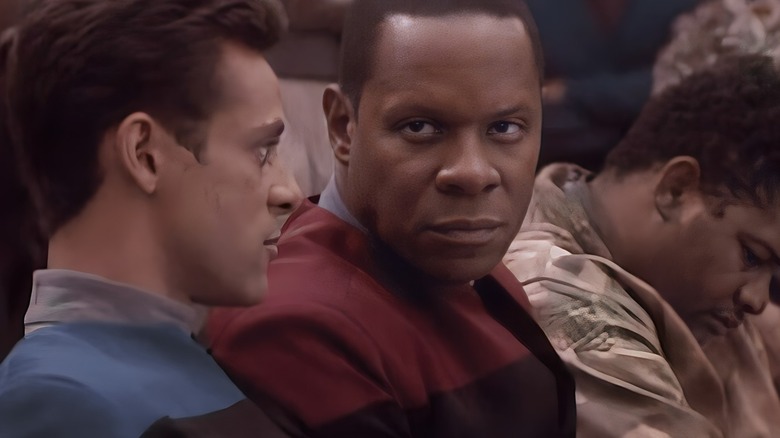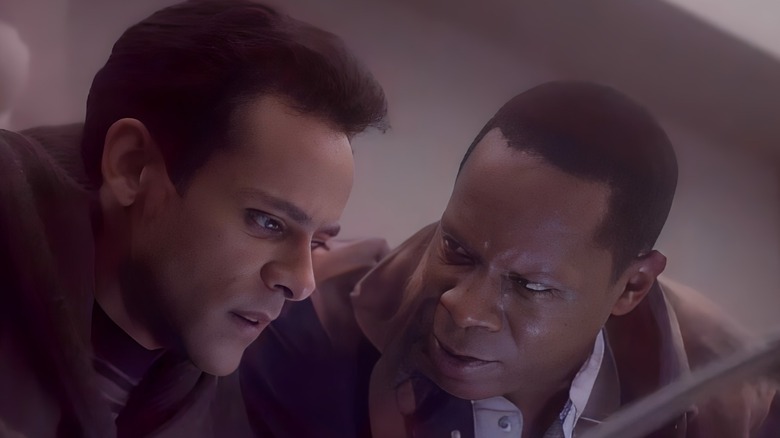The Star Trek Bell Riots Of September 2024: A Deadly American Uprising, Explained
The "Star Trek" franchise boasts an array of memorable time travel-themed episodes, but "Past Tense" is arguably the most politically-charged and memorable of the bunch. In this two-part installment of "Star Trek: Deep Space Nine," Commander Benjamin Sisko (Avery Brooks) and his crew are sent to San Francisco in the year 2024, where they encounter a city that's ravaged by social problems and violence.
The episodes center around the Bell Riots, an uprising that occurs in a closed-off area of the city known as Sanctuary District A, during the first week of September. In short, this is where the government and wealthy elites have dumped society's undesirables in an effort to separate them from regular society, and let's just say that the segregated citizens aren't happy about it. This leads to riots and the government sending in the National Guard to take care of the insurgents, and the Starfleet crew get caught up in the middle of it.
The episode is an exploration of inequality, but societal attitudes toward the District's poor citizens change when America learns about Gabriel Bell (John Lendale Bennett), who protects the employees of the local Processing Center — a government building — from harm. He even gives his life to save them, which causes an outcry across the nation, forcing the government to become more humane and compassionate toward the less fortunate. At the same time, complications arise after Sisko and co. arrive on the scene.
Heroism inspires change during the Bell Riots
The Bell Riots marked a pivotal moment for human history in the "Star Trek" universe's lore. Gabriel Bell's act of heroism changed things for the better, so when Commander Sisko and the gang arrive in San Francisco, they understand that events have to take their natural course. Unfortunately, Bell dies protecting the Starfleet members during their visit, so Sisko assumes his identity until he figures out a solution. He does, but the Bell Riots produce so many casualties that it isn't exactly a feel-good ending.
"Past Tense" ranks among the best "Star Trek" time travel stories, but it's more than a piece of sci-fi entertainment. Both episodes contain some of the most shocking moments in the history of "Star Trek: Deep Space Nine," with dead bodies littering the streets all because of a government that chose to neglect the problems that caused the violence in the first place.
Scenes of societal upheaval are disturbing at the best of times, but this two-part tale was inspired by troubling real-life events, such as the Attica Prison Riots of 1971 and the 1992 Los Angeles Riots. This explains why "Past Tense" is more hard-hitting than the average "DS9" episode. Furthermore, the story's message still packs a punch today, as the themes pertaining to homelessness and poverty in California are just as relevant now.
If you enjoyed this article, check out the best episodes of "Star Trek: Deep Space Nine," according to IMDb.

